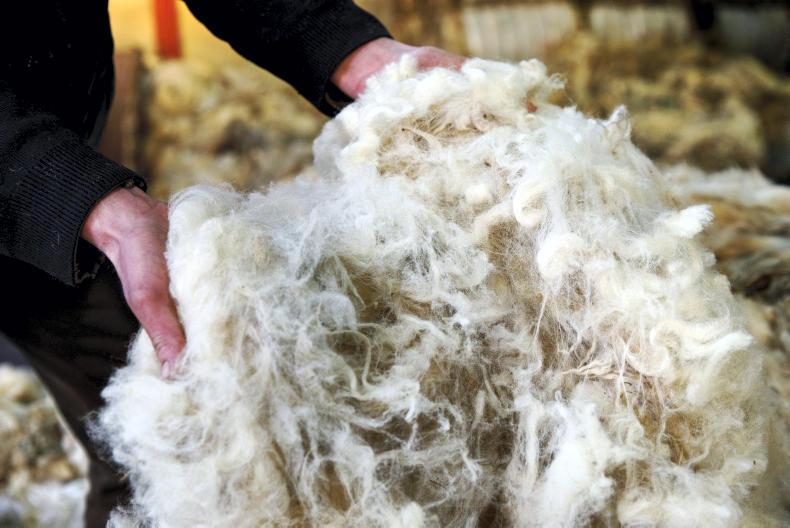Sheep farmers in Northern Ireland who sell wool through Ulster Wool will receive little or no advanced payment for the 2020 clip.
Advanced payments are only being made on some fine and medium wool types.
All other wool will bring no advanced payment, with only full payments issued from May 2021 onwards.
In previous years, producers received an advanced payment in the current year and then balance payments were issued 12 months later when the wool had been sold through auctions run by Ulster Wool’s parent company British Wool.
In Scotland, British Wool is not issuing advanced payments for any wool in the 2020 season and will instead make full payments for all grades next year.
The move underlines the extent to which wool markets are under pressure.
Wool markets closed
Wool markets remain closed worldwide due to the coronavirus pandemic and British Wool is currently carrying around one third of last year’s stock into the 2020 season. It says that it still has some 9m kilogrammes of wool on hand.
Despite having unsold product in store, the Bradford-based organisation has valued the 2019 clip at an average price of 32p/kg (36c/kg), so that balance payments can be calculated for last year’s wool.
Prices range from 15p/kg (17c/kg) for mountain wool to 70p/kg (79c/kg) for some finer wool, although the average price for the 2019 clip is still down by around 30p/kg (34c/kg) year on year.
No wool cheque
The market crash since last year means most wool grades from the 2019 clip will not be eligible for a balance payment in 2020.
This is because last year’s advanced payment already covers the full price that has now been set.
It means that farmers will receive no wool cheque this year if they are not eligible for a balance payment on the 2019 clip and an advanced payment for 2020.
British Wool chief executive Joe Farren described the current situation as “unprecedented valuation uncertainty”, but committed to making another payment for the 2019 clip later in the year if unsold stock makes higher prices than currently projected.
However, he did not give much optimism that this would come to pass.
“The hard fact is that the global cross-bred wool market will be extremely challenging for the foreseeable future,” Farren said.
Irish trade
The wool trade in Ireland also remains depressed, with many merchants still reluctant or not in a position to quote for the 2020 wool clip.
Some merchants are accepting wool into stores with prices being finalised later in the season when there is a better appreciation of what the market can return.
Others continue to point to quotes for good lowland wool potentially being in the region of 15c/kg to 20c/kg, while at this level black Scotch wool is not realising a sale value.
Merchants from Ireland purchasing wool in Northern Ireland have generally not started wool collections yet and are also reluctant to give quotes for this season’s wool.
Merchants who were contacted by the Irish Farmers Journal indicated that it will be another seven to 10 days before prices for the 2020 season are available.










SHARING OPTIONS